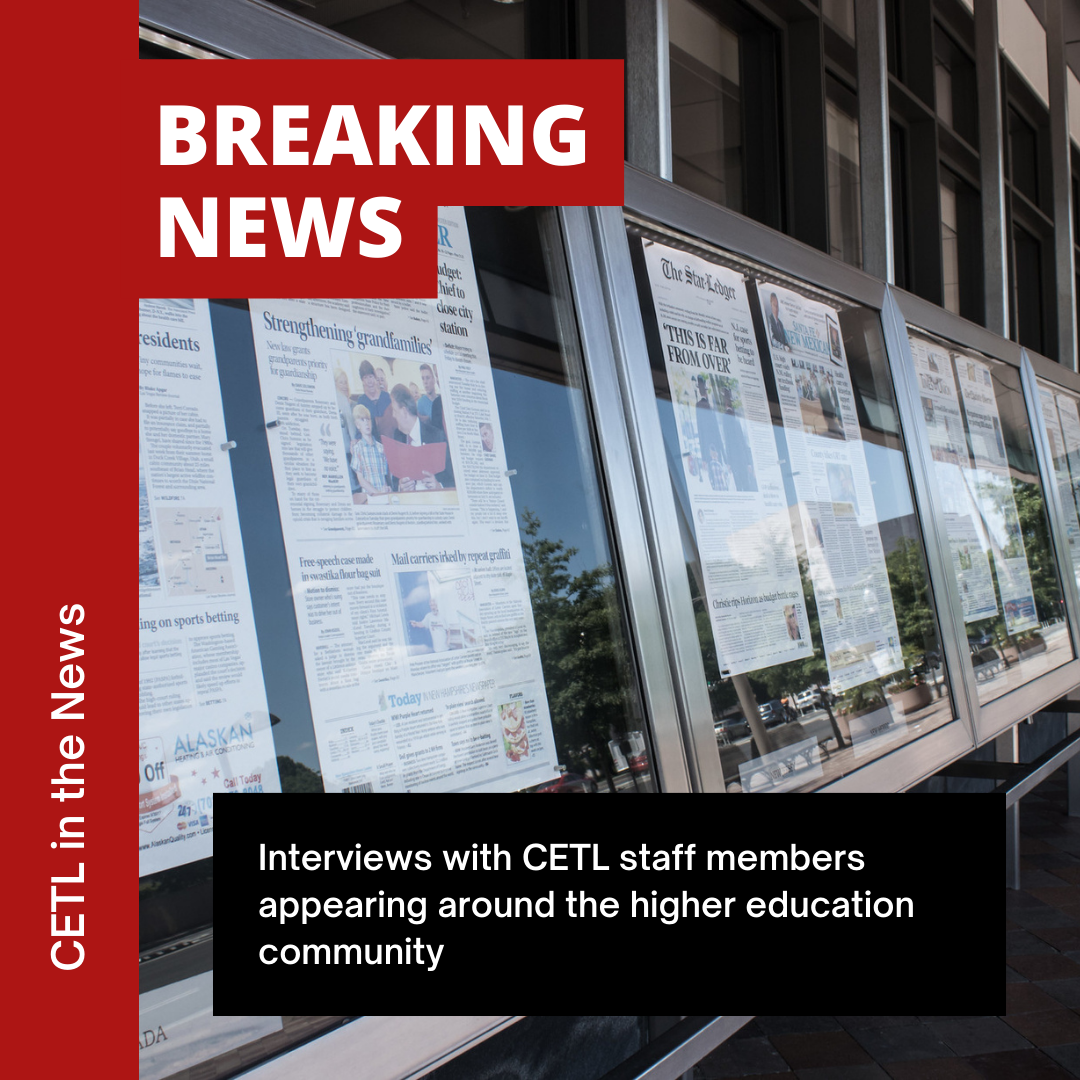In a recent Inside Higher Ed blog post, John Warner writes that teaching is a wicked problem, that is, a situation where the nature of the problem and the tools for solving it are constantly changing. (This is “wicked” in the sense of tricky, not evil!) Warner argues that tackling this wicked problem requires a different kind of educational research than what is typically valued in higher ed: qualitative research. “In short,” Warner writes, “we gotta go qualitative over quantitative in a big way. As a wicked problem, creating valid quantitative studies related to instruction often requires either ignoring or sanding away many of the complexities that inevitably exist in teaching.”
As an example of the kind of qualitative research he’s calling for, John Warner cites Unmaking the Grade, the newsletter written by Emily Donahoe, CETL associate director of instructional support. Emily has been using this platform to chronicle her experiments with ungrading in her courses. Warner appreciates the nuance Emily brings to her newsletter: “Read entry to entry, the experiment takes on a narrative form, which not only makes for more compelling reading but also provides a lens for Donahoe to reflect on what’s happening in her class. We see the layers of complexity at play in the teaching experiment.”
If you haven’t been reading Emily’s newsletter, you can read all of her posts at Unmaking the Grade.
Meanwhile, CETL visiting associate director Derek Bruff continues to make the rounds on podcasts talking about generative AI and its impact on teaching and learning this fall. His latest appearance is on the Limed: Teaching with a Twist podcast from Elon University’s Center for Engaged Learning. Host Matt Wittstein interviewed Elon strategic communications professor Jessica Gisclair about her goals for teaching with and about AI this fall, then talked with a panel of students and faculty, including Derek, about possible approaches for meeting those goals. You can listen to the entire conversation here, or search for “Limed: Teaching with a Twist” in your favorite podcast app.
